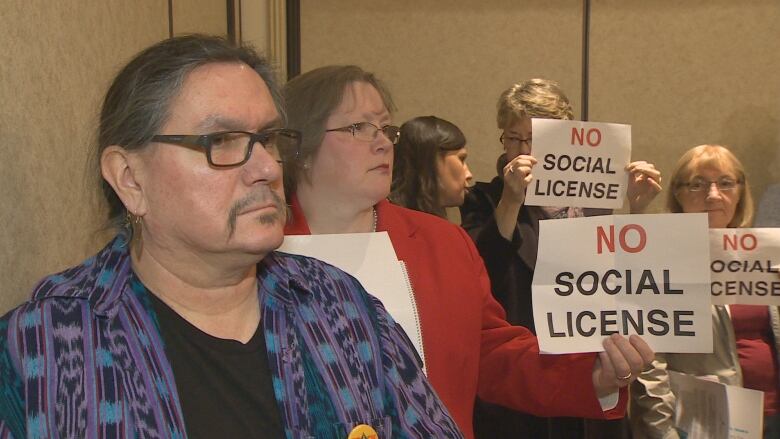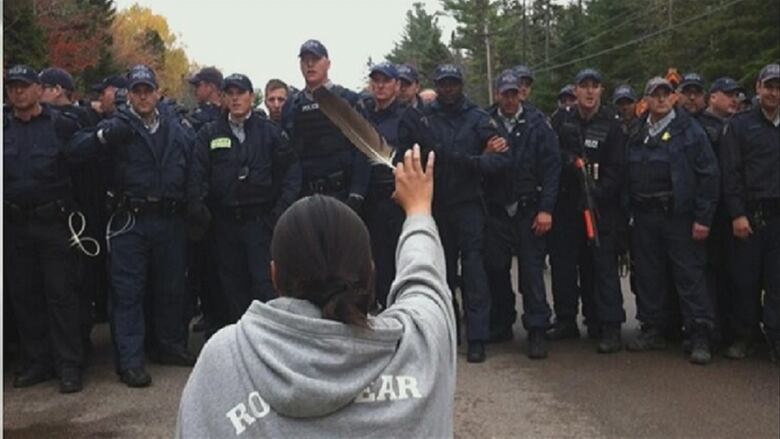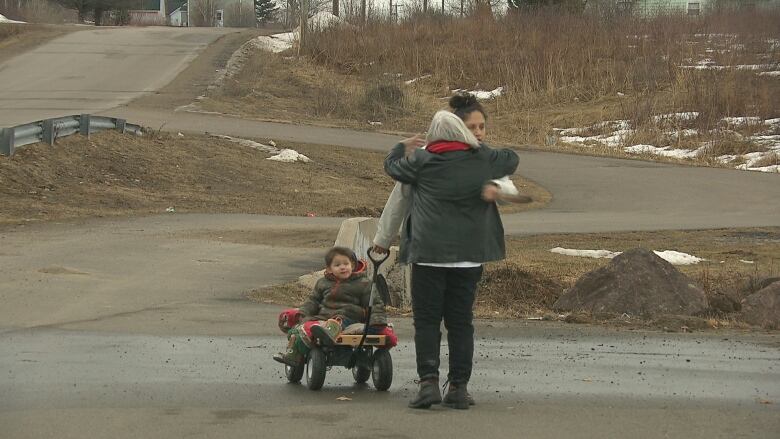Anti-fracking protesters say report won't lessen their resolve
'Are you kidding, are we up to do it again?' says protester

People involved in the Kent County anti-fracking protests of 2013 were watching the announcement of Friday's shale gas report closely.
Dozens of people from First Nations and nearby communities in Kent County took part in barricades to block exploration equipment in the area.
It culminated in a showdown that saw five police vehicles burned, 40 peoplearrested, others pepper-sprayed, and some shot at with non-lethal bullets by RCMP.

She feels what is in the report doesn't matter, it's what the government does with it.
"They can talk all they want, all the good talks they want, say, make all the promises they want but in the endit's the actions that are going to count," said Polchies.
Polchies says she is all for more research, and the government putting more efforts into consultations but said when it comes to hydraulic fracturing happeningnear her community, nothing will change her mind.
"Never, never, I would never be okay with it, I've researched it, I've looked at areas where there's been fracking, those areas aren't recoverable, the people that are affected...I don't want that here, I don't want my people to be destroyed like that," she said.
Ann Pohl agrees. She says opposition was so strong, it brought communities in the region together, and that bond between those communities is still strong.

Ron Tremblay, Chief of the Wolastoq Grand Council was in Fredericton for the release of the report.
"We have a declaration that we put forward protecting Mother Earth, the water and the air and we're very very firm," said Tremblay. "If there's any way that she'll be damaged along with the water and the air we cannot support that."
Provincial Mi'kmaq Chiefs also issued a statement Friday, saying the moratorium needs to stay in place and the entire relationship between Firsts Nations and the Crown needs to be rebuilt.












_(720p).jpg)


 OFFICIAL HD MUSIC VIDEO.jpg)
.jpg)



























































































